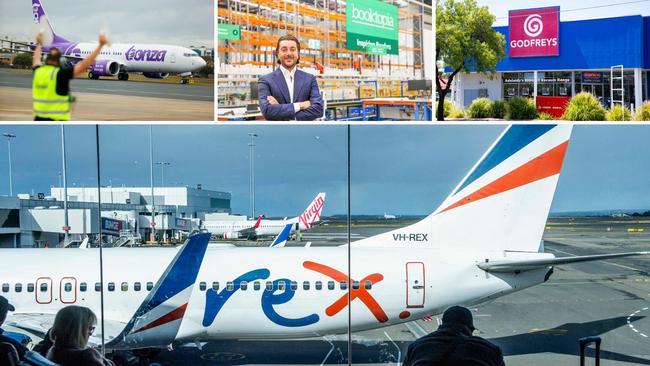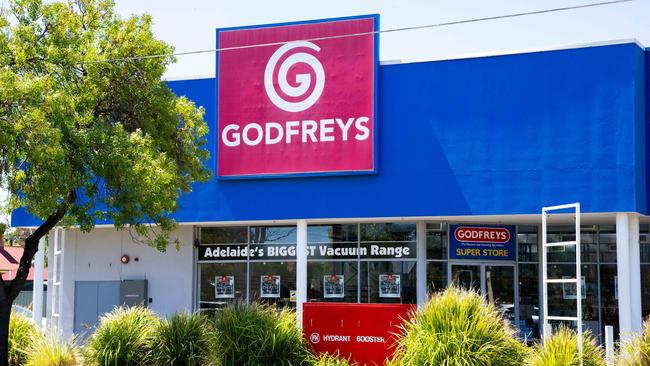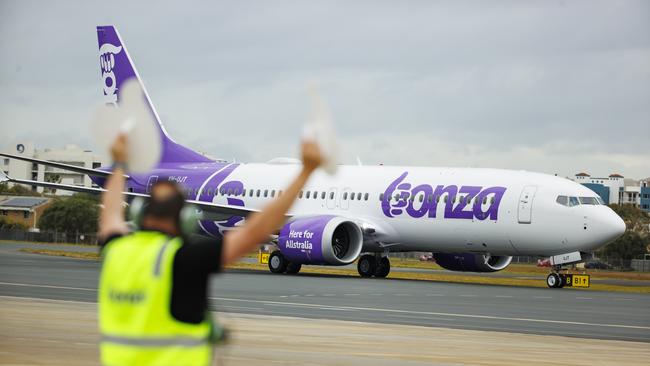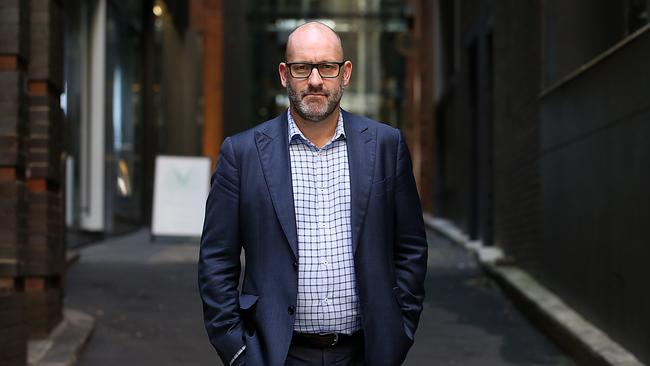Australian administrators collecting millions as growing number of big businesses face insolvency
Major accounting firms are collecting millions of dollars in remuneration as a growing number of large businesses collapse amid a deterioration in Australia’s economy.

Australia’s major accounting firms are raking in tens of millions of dollars in remuneration fees amid a surge in insolvencies as rising costs, dwindling revenue and a crackdown on unpaid tax push businesses into financial strife.
Insolvency appointments have soared 40 per cent in the 2024 financial year to a record high of 11,049 – surpassing the peak of the Global Financial Crisis – with the latest September quarter 45 per cent above the same period in 2023.
The voluntary administration of airlines Rex, which saw its Boeing 737 operations axed, could earn administrator EY nearly $8m, while the decision by Hall Chadwick to wind up Bonza resulted in a $3.5m payday.
Industry figures say voluntary administration is an expensive process due to the liability that the administrator takes on, with directors urged to undertake due diligence and work with creditors before proceeding to keep costs down.
Under a voluntary administration, the administrator is entitled to first cut of the available pool of money, before creditors.
BDO business restructuring national leader Duncan Clubb said the process outsourced the business and its liabilities to a third party who had to ensure they would not lose money if it was a viable business.
He said fees started at about $50,000 and could easily run into the millions for more complex jobs.
“It’s a scalable business model with accounting and you charge by the hour, so it can get expensive very quickly.
“You have to factor that in, whereas if you do a straight liquidation you wouldn’t have to pay the outlay like you do with a voluntary administration,” he said. “It is something for businesses to think about in terms of doing a deal with its creditors before the process, as you are going to pay an administrator and that’s typically going to take a decent whack of money from the pool.”

Voluntary administration appointments rose 14.5 per cent in the 2024 financial year to 1492, and 120 per cent from 2023. In the September quarter, there has been a 5 per cent uplift to 392.
Rex and its subsidiaries are shaping up to be the most costly voluntary administration in several years, with EY estimating that its remuneration will be between $6.4m and $7.9m, depending on when a buyer is found. Hall Chadwick, which oversaw the collapse of budget carrier Bonza and later its wind up, collected $3.52m.
Godfreys, a seller of vacuum cleaners for almost 100 years until it collapsed in January and closed for good in May, resulted in a claim by administrator PwC for $3.54m, while the voluntary administration of Booktopia is estimated to have cost up to $900,000 by McGrathNicol before digiDirect acquired it.

Australian Restructuring Insolvency and Turnaround Association chief executive John Winter said increased red tape had made voluntary administrations more expensive to run, particularly with creditors meetings.
“It takes longer and longer to put together the type of notes that you have to share with creditors and all of that somebody’s got to pay for at the end of the day,” he said.
“The government is still yet to make any changes since a parliamentary joint committee inquiry into corporate insolvencies wrapped up 18 months ago.
“The main message from the inquiry was to radically simplify our laws to make it more affordable and accessible.”

ASX-listed Beston Global Food Company appointed KPMG to oversee its voluntary administration last month, amid mounting debt.
KPMG said fees would probably be $1.5m, based on its experience of companies of a similar size and the default convening period of 25 business days. Billable hours at KPMG run as high as $960 per hour.
In Virgin Australia’s voluntary administration, which saw Bain Capital later acquire the airline, Deloitte billed more than $16m in professional time throughout 2020.
BDO is seeking $175,000 in remuneration from the voluntary administration of Sydney pub baron Jon Adgemis’s hospitality business.
he administrator alleges it traded insolvent for three years, saying the former KPMG deal-maker pulled out $475,000, plus a further $9m through a related entity, from the teetering business prior to its collapse.

Mr Winter said that creditors had to approve or reject remuneration sought by administrators at creditor meetings, and also had the option of legal action or lodging a complaint with the insolvency industry body that he oversees. “Fees are always contentious because these professionals are experienced and have to do a lot of work and charge a reasonable amount of money at a time where people are going through loss,” he said.
“An administrator can’t draw down any money until the creditors have approved it.
“For an administrator costs can easily skyrocket, as what may seem like a quick job can become costly if there are creditor disputes, it ends up in court or if they find malfeasance.”
He added that businesses should do due diligence to choose an appropriate administrator that had the right experience.
Firms that offered cheap quotes to get jobs could later driving up the price.
Mr Winter said fees charged by liquidators were about 20 per cent less than prices set by tax and audit partners.






To join the conversation, please log in. Don't have an account? Register
Join the conversation, you are commenting as Logout